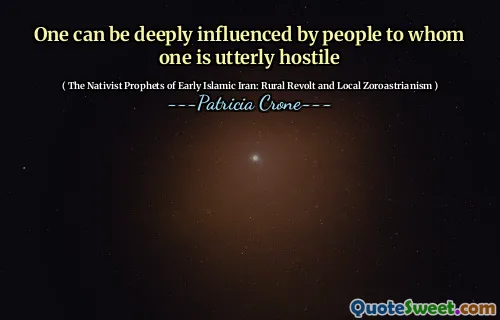"The Nativist Prophets of Early Islamic Iran" explores the intersection of rural revolts and the enduring legacy of Zoroastrianism in early Islamic Iran. The book delves into how local religious traditions and identities influenced resistance against the Islamic conquest and subsequent Arab rule. It highlights the ways in which Zoroastrian beliefs persisted even as Islam spread, creating a unique cultural landscape shaped by both influences.
The authors provide a nuanced examination of the motivations behind these revolts, suggesting that local leaders leveraged Zoroastrian elements to rally support among their communities. This included invoking prophetic figures and traditional religious narratives that resonated with the rural populace. Such dynamics reveal the complexity of identity during a period of significant political and religious change.
Ultimately, the book contributes to our understanding of early Islamic history by emphasizing the role of local traditions in shaping resistance movements. It argues that the integration of Zoroastrian elements into these revolts illustrates the resilience of pre-Islamic cultural identity and offers insights into how societies navigate transformation and conflict.
More »
Today Birthdays
1729 -
Edmund Burke
1949 -
Haruki Murakami
1954 -
Howard Stern
1876 -
Jack London
1993 -
Zayn Malik
1951 -
Kirstie Alley
1863 -
Swami Vivekananda
1923 -
Alice Miller
1987 -
Naya Rivera
1825 -
Brooke Foss Westcott
1944 -
Joe Frazier
1951 -
Rush Limbaugh
1964 -
Jeff Bezos
1978 -
Jeremy Camp
1628 -
Charles Perrault
1856 -
John Singer Sargent
1970 -
Kaja Foglio
1953 -
Rick Santelli
1986 -
Gemma Arterton
1968 -
Raf Simons
1958 -
Christiane Amanpour
1966 -
Olivier Martinez
1996 -
Ella Henderson
1917 -
Maharishi Mahesh Yogi
1949 -
Ottmar Hitzfeld
1928 -
Ruth Brown
1968 -
Heather Mills
1946 -
George Duke
1968 -
Rachael Harris
1923 -
Ira Hayes
